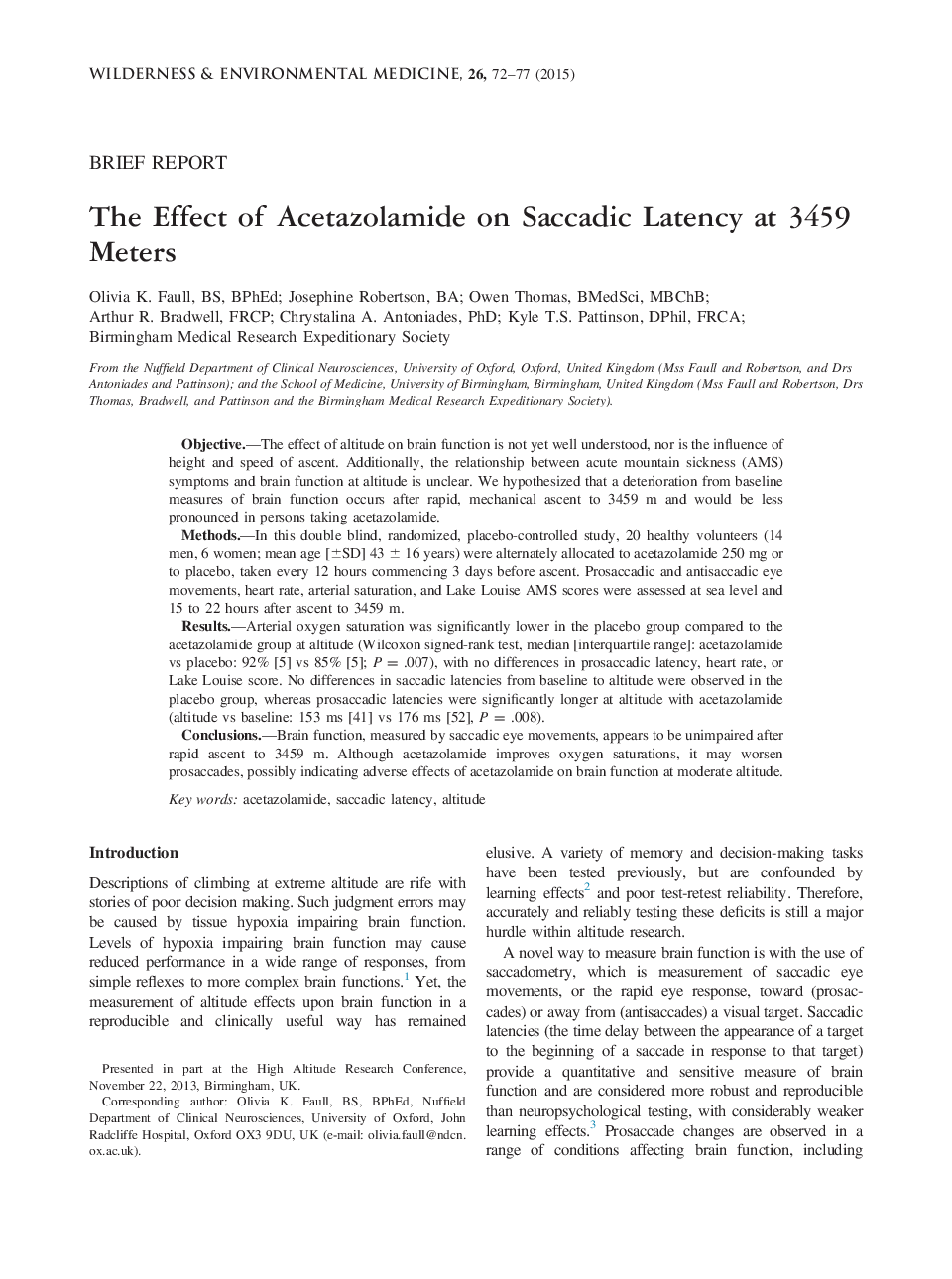| Article ID | Journal | Published Year | Pages | File Type |
|---|---|---|---|---|
| 2614037 | Wilderness & Environmental Medicine | 2015 | 6 Pages |
ObjectiveThe effect of altitude on brain function is not yet well understood, nor is the influence of height and speed of ascent. Additionally, the relationship between acute mountain sickness (AMS) symptoms and brain function at altitude is unclear. We hypothesized that a deterioration from baseline measures of brain function occurs after rapid, mechanical ascent to 3459 m and would be less pronounced in persons taking acetazolamide.MethodsIn this double blind, randomized, placebo-controlled study, 20 healthy volunteers (14 men, 6 women; mean age [±SD] 43 ± 16 years) were alternately allocated to acetazolamide 250 mg or to placebo, taken every 12 hours commencing 3 days before ascent. Prosaccadic and antisaccadic eye movements, heart rate, arterial saturation, and Lake Louise AMS scores were assessed at sea level and 15 to 22 hours after ascent to 3459 m.ResultsArterial oxygen saturation was significantly lower in the placebo group compared to the acetazolamide group at altitude (Wilcoxon signed-rank test, median [interquartile range]: acetazolamide vs placebo: 92% [5] vs 85% [5]; P = .007), with no differences in prosaccadic latency, heart rate, or Lake Louise score. No differences in saccadic latencies from baseline to altitude were observed in the placebo group, whereas prosaccadic latencies were significantly longer at altitude with acetazolamide (altitude vs baseline: 153 ms [41] vs 176 ms [52], P = .008).ConclusionsBrain function, measured by saccadic eye movements, appears to be unimpaired after rapid ascent to 3459 m. Although acetazolamide improves oxygen saturations, it may worsen prosaccades, possibly indicating adverse effects of acetazolamide on brain function at moderate altitude.
